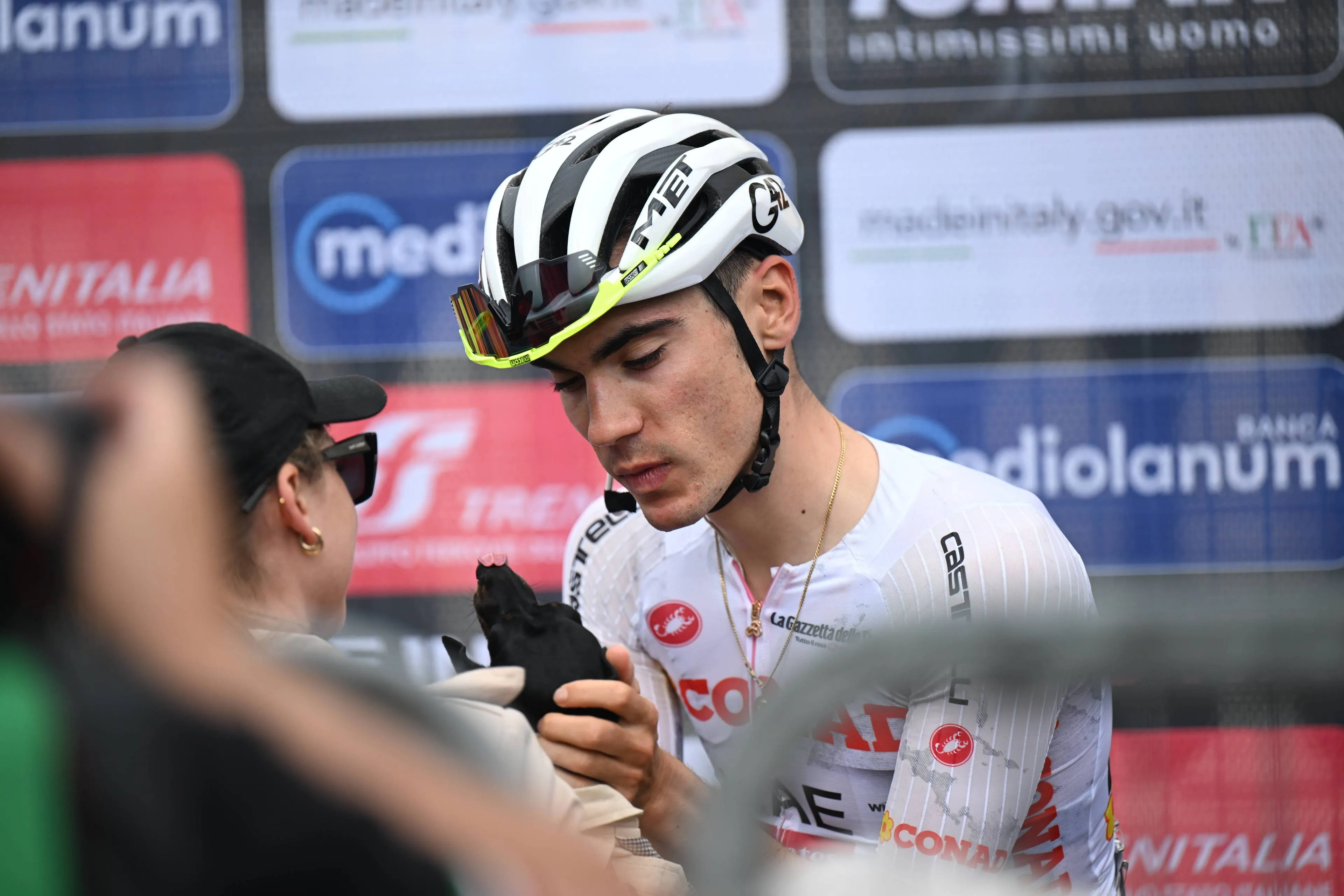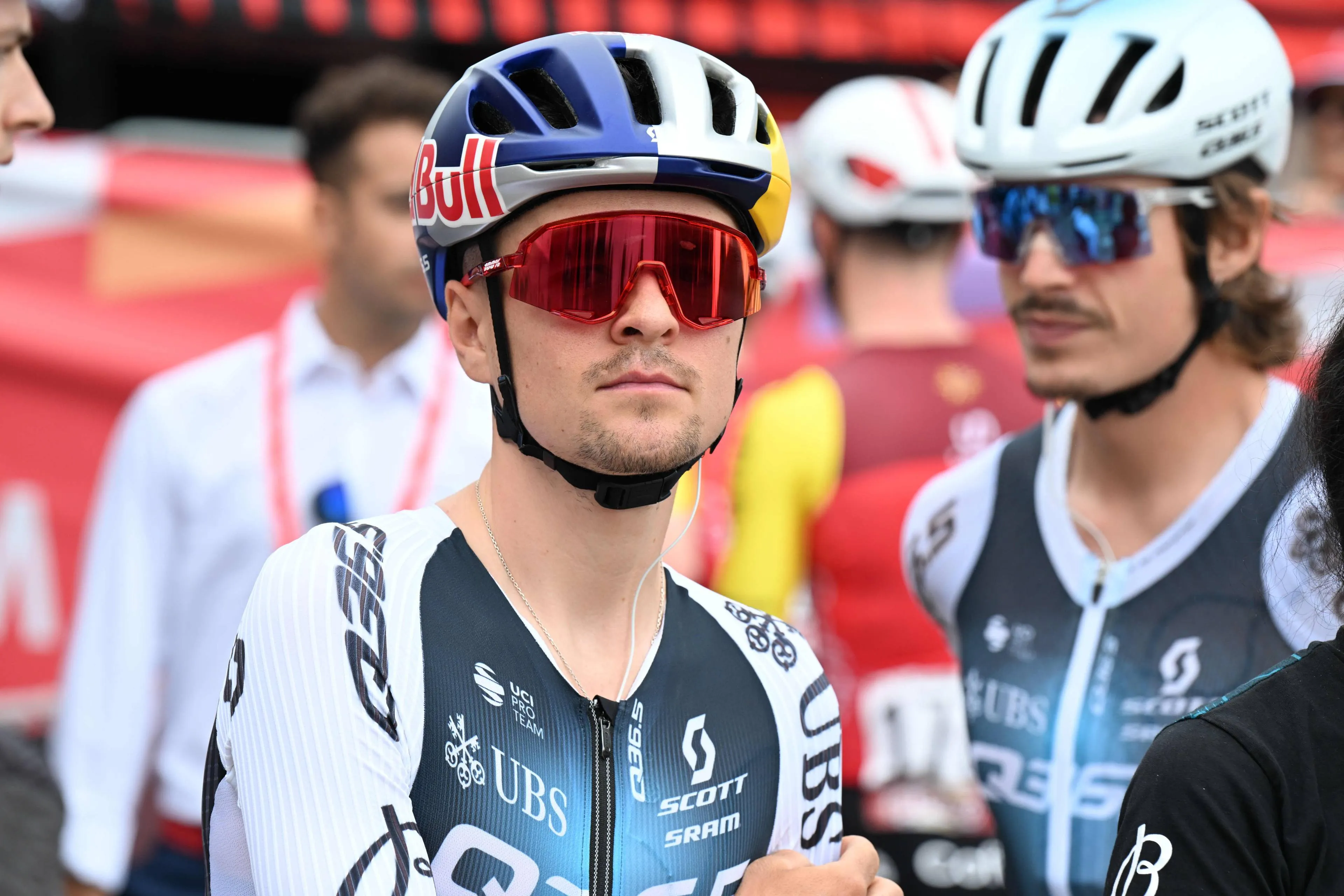“Cycling is on a precipice”: One Cycling hits back after UCI snub
CyclingThursday, 19 June 2025 at 11:00

The battle over the future of
professional cycling escalated recently as One Cycling, the Saudi-backed
project seeking to revolutionise the sport, responded defiantly to the UCI’s
decision to block their proposed races from entering the 2026 WorldTour
calendar.
Backed by a €250 million
investment from the Saudi Arabian SURJ Sports Investment Fund, One Cycling had
aimed to introduce four new WorldTour-level races, in North and South America
and Saudi Arabia, and create a new, commercially focused series of 22 events.
But the UCI’s Management Committee dismissed the plan as “incompatible.”
Read also
There’s no doubt that cycling
needs a shake up. This business model would allow for a more consistent revenue
stream for the teams, who currently rely almost solely on sponsorships. But
would One Cycling damage the essence of the sport? That is indeed the question.
Still, those behind One Cycling
insist the project is not dead. Speaking to CyclingNews, a source close
to the initiative warned that the sport faces a stark choice: evolve or risk
irrelevance.
“Sports that are willing to
transform and change are interesting to investors; those that aren't will get
left behind. Pro cycling is on a precipice right now.”
Read also
The anonymous insider didn’t shy
away from the stakes: “The consequence of burying your head in the sand could
be the death of you. Cycling very much faces that risk.”
While the UCI has positioned
itself publicly as open to external investment, President David Lappartient
previously saying “We welcome our Saudi friends,” the governing body ultimately
sided against granting One Cycling’s races top-tier status. Lappartient had
been attempting to strike a delicate balance between embracing financial
support and protecting the sport’s existing calendar, particularly the historical
races organised by ASO.
Read also
ASO, the powerful group behind
the Tour de France, remains the lone major entity opposed to One Cycling, with
other top-tier teams, including Visma, Red Bull and Soudal – Quick-Step, reportedly supportive. One Cycling itself
claims to have “95% of the best riders in the sport” involved in its plans.
Their argument is simple: the
current business model of pro cycling is broken, and something needs to change.
Read also
“We've got a commercial
proposition that we think works,” the same source said. “We think it's going to
grow revenue for the sport. It's going to allow the teams and organisers that
are all losing money to potentially make money.”
That logic, centralising
commercial rights, revamping media packaging, and spreading races to new
regions, is a sharp departure from cycling’s decentralised, tradition-heavy
model. But with the UCI siding with ASO for now, the tension between
modernisation and preservation is far from resolved.
claps 0visitors 0
Just in
Popular news
Latest comments
- You need to get out moreJezla18-02-2026
- Ego and self regard are at the center of most human folly.TheOlderIGetTheFasterIWas18-02-2026
- You can't win 'em all. These early season races at this level are good because it shows where you are weak and need work.awp18-02-2026
- This is what I wrote 12-02-2026 10:00: "As far as I'm convinced, Remco still has "zero" wins. I invite Remco to stop in Siena to meet his Slovenian master, Pogi the G.O.A.T... but no, it's better to run away and hide. His fans will somehow defend and glorify him. Let me repeat, he still has zero wins in 2026. If someone doesn't have a high enough IQ to understand what I'm talking about, it's because they don't recognize the low ranking F category races. If Remco will beat Del Toro and Adam Yates in the UAE Tour, then I will consider this to be his first win in 2026. Ad acta." PS: Remco still has zero wins. His second and third class races don't count. The first real race comes along and Mustafa Remco fails.Mou-Cro-HR18-02-2026
- This is what I wrote 12-02-2026 10:00: "As far as I'm convinced, Remco still has "zero" wins. I invite Remco to stop in Siena to meet his Slovenian master, Pogi the G.O.A.T... but no, it's better to run away and hide. His fans will somehow defend and glorify him. Let me repeat, he still has zero wins in 2026. If someone doesn't have a high enough IQ to understand what I'm talking about, it's because they don't recognize the low ranking F category races. If Remco will beat Del Toro and Adam Yates in the UAE Tour, then I will consider this to be his first win in 2026. Ad acta." PS: Remco still has zero wins. His second and third class races don't count. The first real race comes along and Mustafa fails.Mou-Cro-HR18-02-2026
- OK, let's stop with the BS. Remco Mustafa didn't have any cramps, 100%. The only truth is, Remco is not the great cyclist that the Belgians and his fans want us to think. Ad acta!!!... Once in the fall of 2025 I said that Remco's chances of following Pogi are equal to my chances, there is no difference. The only difference is that I'm in front of a TV and Mustafa is acting and making excuses live in front of an audience of millions. Ayuso and Remco are the biggest liars in the peleton.Mou-Cro-HR18-02-2026
- I just hope that he just says that he got cramps and that's it, rather than some long-winded excuse which makes him seem even more of a piece of...
 Rafionain-Glas18-02-2026
Rafionain-Glas18-02-2026 - finally, a team that does something smart. I could never understand why Ineos would like Egan train as he did alone. put a motorbike behind him with an earpiece to call out issues above. same with remco crashing into a postal truck.mij18-02-2026
- Wow, that is not a good sign for Remco. Great win for Tiberi!Pedalmasher18-02-2026
- Great champion Remco but his profile is more suitable for Ardennes-like races and tour with no very hard climbs. Not only Tadej and Vingegaard, there are a lot of younger cyclists (del Toro, Ayuso, maybe Seixas, Nordhagen and others) that will soon be big GC boys.
 maria2024202418-02-2026
maria2024202418-02-2026
Loading
Write a comment











